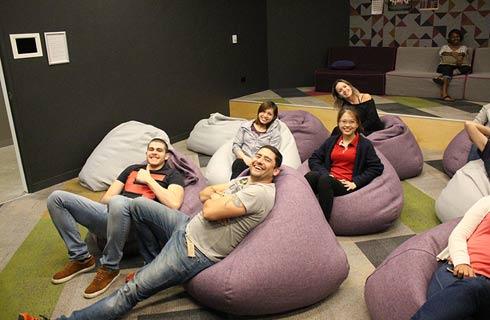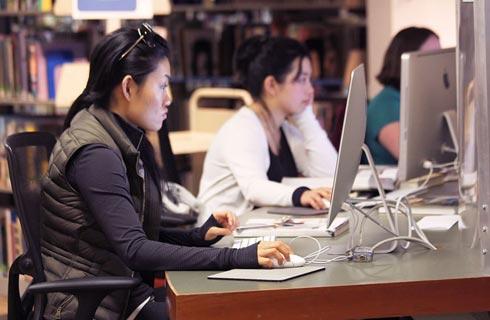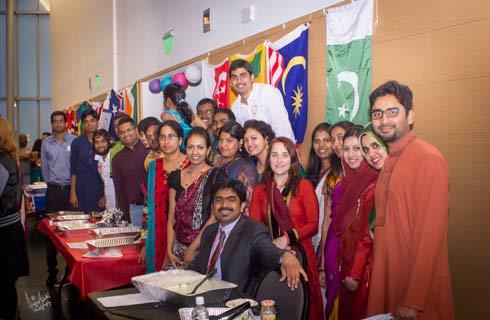Master of Law (LLM) - Intellectual Property, Technology, and Telecommunications Law

学历文凭
Masters Degree

专业院系
法律研究

开学时间

课程时长

课程学费

国际学生入学条件
Proof of English proficiency - TOEFL: Ibt -100, TOEFL: Pbt – 600, IELTS: 7.0. Your official law school transcript, including award of degree, along with translations into English. Applicants must include all of their higher education transcripts and awards of degree; Three letters of recommendation. We highly recommend submitting at least one recommendation from a former law professor who can attest to your academic capabilities;
University Requirement: Hold a baccalaureate degree from an accredited college or university, or have done work equivalent to that required for such a degree. Have adequate preparation to enter graduate study in the chosen field. Have at least a 2.75 (2.00=C) undergraduate grade point average.
IDP—雅思考试联合主办方

雅思考试总分
7.0
了解更多
- 雅思总分:7
- 托福网考总分:100
- 托福笔试总分:600
- 其他语言考试:Duolingo - 120
CRICOS代码:
申请截止日期:请 与IDP联系 以获取详细信息。
课程简介
The LLM program fully immerses students in Colorado Law and offers inclusive access to programming, courses/modules, and the greater University of Colorado-Boulder campus, our JD and LLM students learn side-by-side and from each other. At Colorado Law, we recognize that all LLM students have unique and diverse backgrounds and experiences, backgrounds and experiences that can enrich our community of scholars and students and help to advance Colorado Law's intellectual leadership in the world. LLM program course options are diverse, and each LLM student has the ability to design a program of study suited to his or her academic and professional interests. While students complete most courses at the law school, they also have the opportunity to complement their legal studies with graduate-level courses in other departments within the greater University of Colorado-Boulder.<br><br>Colorado Law has a long history of research and teaching about the law of indigenous peoples. With the arrival of Dean James Anaya, the law school is expanding its research and teaching in this area. Faculty and students are engaged in projects with indigenous groups, the United Nations, other intergovernmental bodies, national governments, NGOs, and companies throughout the Americas and the world on issues concerning indigenous peoples. Research and teaching in this area also connects with Colorado's strengths in other areas, such as international law, natural resources, and intellectual property.
相关申请

预科

奖学金

实习机会

在校学习

跨境学习

校园授课-线上开始

在线/远程学习
学校排名
世界排名
124
数据源:泰晤士高等教育世界大学排名
关于科罗拉多大学博尔德分校

科罗拉多大学波德分校成立于1877年,是落基山地区优秀的综合性研究型大学,该校的自然科学、工程学、商务、法律、艺术、人文、教育、音乐等学科尤为突出。科罗拉多大学波德分校校园景色壮观美丽,吸引了一流的师资和来自世界各自的莘莘学子,共同构建了一个充满活力的校园环境。科罗拉多大学波德分校距离卡罗拉多州首府丹佛仅30英里(48公里)只需短程驾车便可达到美国发展最快的城市之一。由于临近丹佛,科罗拉多大学波德分校也接近许多主要的文化圣地、有许多实习和工作机会。学校附近的实习和工作单位:IBM、波音、谷歌。科罗拉多大学波德分校是久负盛名的“美国大学协会”的34 所公立大学之一,是一所具有卓越学术和尖端科研的美国顶级高校。该校强大的校友网、与龙头企业密切合作、高排名的学术成就、丰富的校园及社区活动为学生学业及未来职业发展提供了无限机遇。
本校相关课程
戏剧与表演研究哲学博士

学历文凭
Ph.D.
下一个开始日期
课程费用总额
戏剧和表演研究文学硕士

学历文凭
Masters Degree
下一个开始日期
课程费用总额
工商管理硕士/电信科学硕士

学历文凭
Double Major Degree
下一个开始日期
课程费用总额
技术,媒体与社会哲学博士

学历文凭
Ph.D.
下一个开始日期
课程费用总额
技术,媒体和社会科学硕士-创意技术和设计(CTD)

学历文凭
Masters Degree
下一个开始日期
课程费用总额
听力学博士学位

学历文凭
Ph.D.
下一个开始日期
课程费用总额
其他相关课程
法学学士[一般]

滑铁卢大学
泰晤士高等教育世界大学排名:

学历文凭
Bachelor Degree
下一个开始日期
课程费用总额
人类研究哲学博士

劳伦森大学
泰晤士高等教育世界大学排名:

学历文凭
Ph.D.
下一个开始日期
课程费用总额
人类动力学硕士

劳伦森大学
泰晤士高等教育世界大学排名:

学历文凭
Masters Degree
下一个开始日期
课程费用总额
律师助理研究生证书

德恒学院
泰晤士高等教育世界大学排名:

学历文凭
Graduate Certificate
下一个开始日期
课程费用总额
调解研究生证书-替代性纠纷解决

德恒学院
泰晤士高等教育世界大学排名:

学历文凭
Graduate Certificate
下一个开始日期
课程费用总额
人权文学士

温尼伯大学
泰晤士高等教育世界大学排名:

学历文凭
Bachelor Degree
下一个开始日期
课程费用总额




